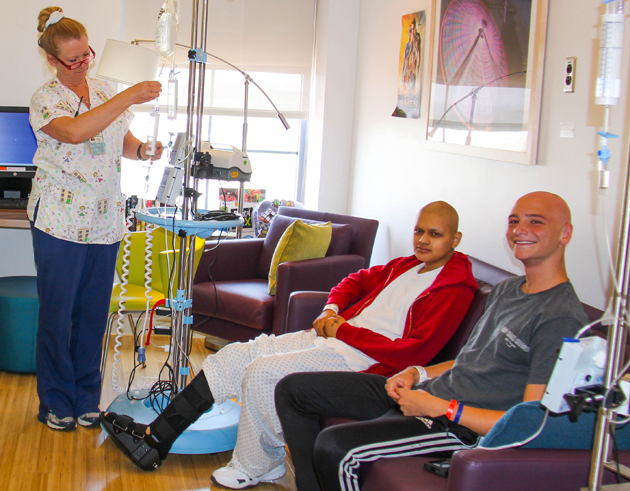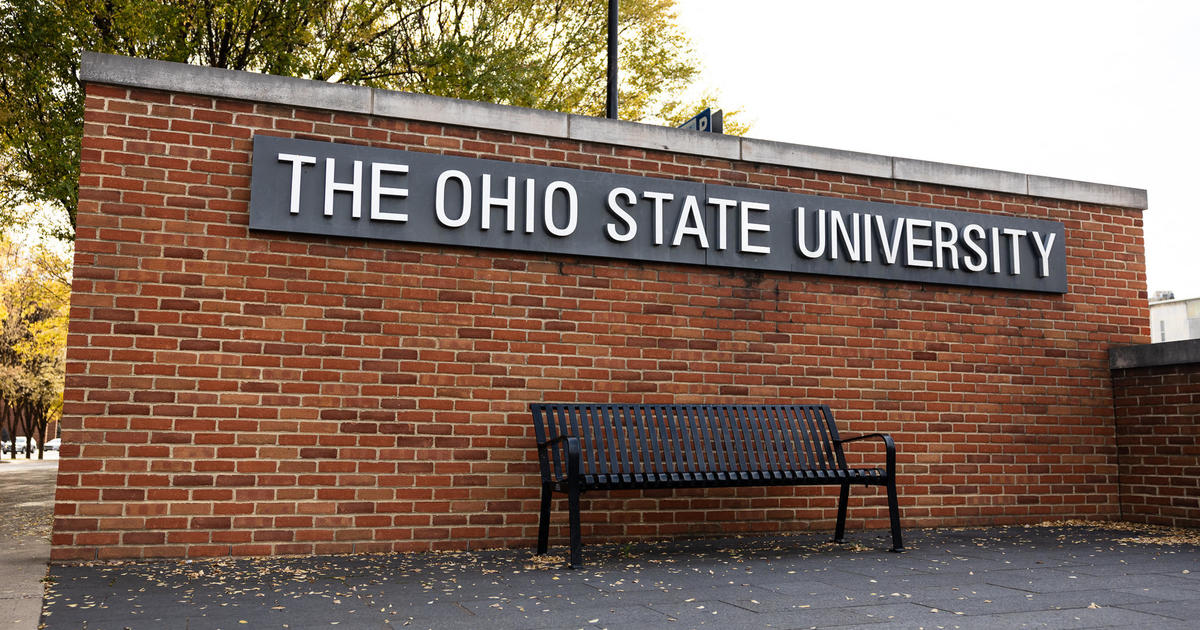Program to help "forgotten" teen cancer patients
Better treatments and screenings are helping children and older adults with cancer live longer. Over the last 30 years, however, doctors say the survival rate for teens and young adults hasn't seen those same kind of gains.
To address the gap, UCLA Medical Center launched one of the first cancer programs in the country designed specifically for teens and young adults.
"In cancer, they really have been a forgotten population," said Dr. Noah Federman, a pediatric hematologist and oncologist at UCLA's Daltrey/Townshend Teen & Young Adult Cancer Program. "We provide the holistic care that they need, not just the medical care, but the psycho-social support."
The center offers patients a team of experts, including psychiatrists and social workers, who specialize in treating the needs of teens. Patients can also consult fertility experts since some treatments can leave cancer survivors unable to have children. Despite the seriousness of it all, the center attempts to put patients at ease with colorful murals along the walls, and a modern lounge gives teens and young adults a place to socialize.
"It's nice to have the little things that make you feel better," said Alec Kupelian, a 19-year-old who spends up to five nights a week at the center receiving chemotherapy.
"You're nauseous 80 percent of the time," Kupelian said. "[The center] makes it easier to cope with everything."
The college sophomore withdrew from the University of Santa Barbara in May to begin cancer treatments after doctors discovered a tumor in his pelvis.
"I think having this young adult center, for me, is helpful because it gives me a place that's mine," Kupelian said. "It gives me a place that's more comfortable for me, and kind of suits my needs more."
Since 1975, cancer survival rates for children 14 and under have increased by 25 percent. Adults over 40 have seen a nearly 20 percent gain over the same time period. Yet, survival rates among 20 to 39 year olds only increased by about 13 percent. Cancer patients ages 15 to 19 had survival rates increase by about 17 percent.
"What we need to do is really concentrate on this population...developing clinical trials and new therapeutics specifically for these patients," Federman said. "This becomes a home for them...that's very important to getting through this emotionally and mentally, which then helps them psychically."
Kupelian says a sense of humor doesn't hurt either.
"This is one of those things that kind of sucks, but it's not too bad....it could be cancer," he joked, while cracking a smile.
Kupelian hopes to return to college after finishing another 8 months of treatment. He says the center's personalized program isn't just changing his life, it's saving it.
Through this [program], you can see other people who've gotten through, and they keep going," Kupelian said. "I know that I'll be able to do that, too...after this, I still get to go on."




